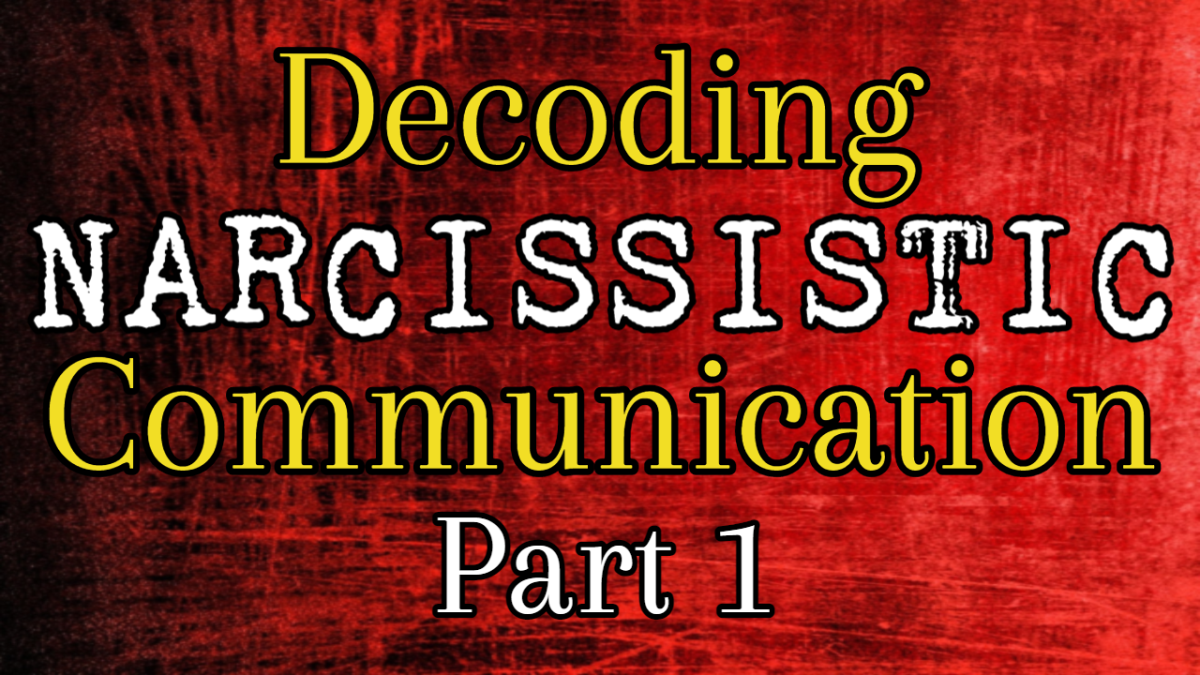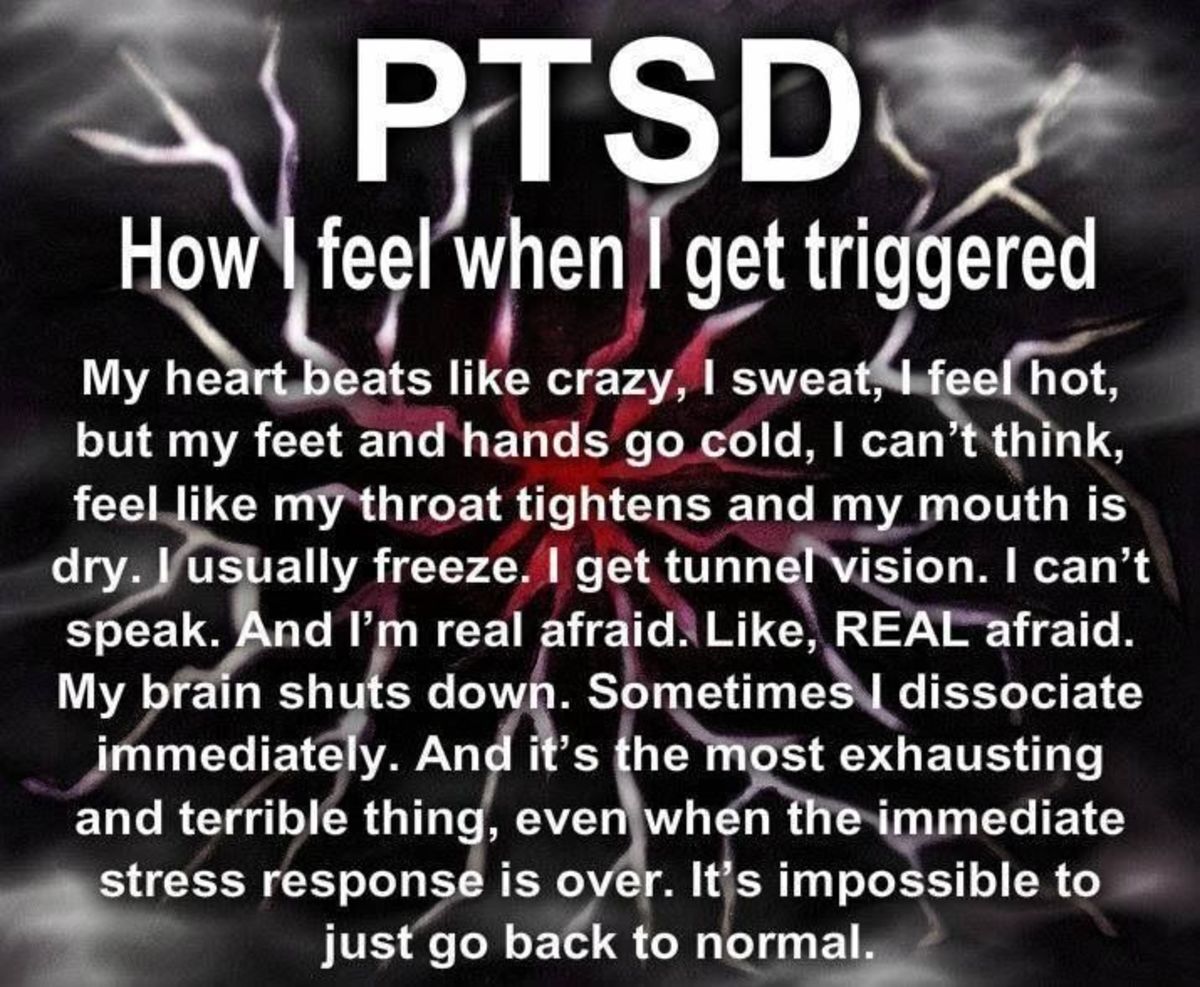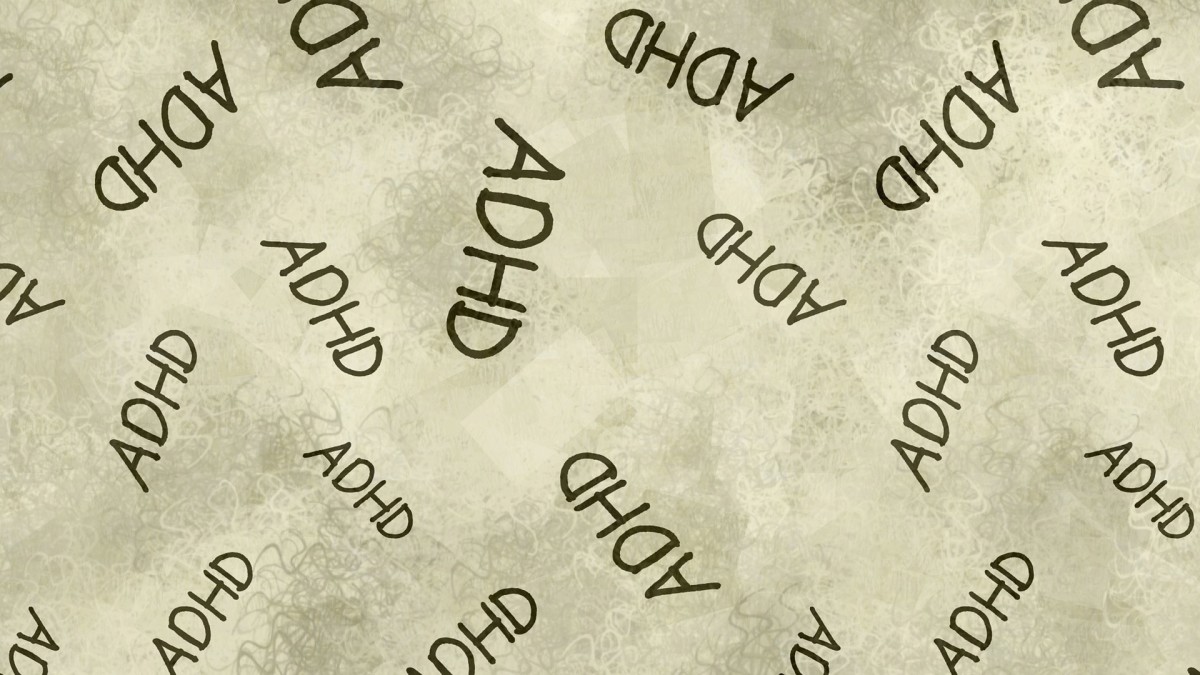Diagnosed with ADHD Now What?
Diagnosed with ADHD. Now What?
Once you have a clear diagnosis, it's important to learn everything you can. This is not some fly by night disorder as many pretend it is. I cannot stress enough the importance of educating yourself and anyone close to you, about this disorder. Even if you have it to a lesser degree than others, it will impact your life to some extent.
I encourage you to share this with your significant other. Talk about it. Ask them what they think about it. The key to success is knowledge and application. Okay. So, application might be a little harder for you that have ADHD, but now you will have the support of someone, hopefully, and you can take comfort in knowing things can get better.
Once you start to learn about ADHD, you will likely go through many stages of emotion.
Shock, disbelief. Relief. Denial. Anger. Resentment towards lost opportunity. Depression.
More than likely, you will experience all of these. As you go through each stage, it's important to continue learning. Growing, and experimenting with different ways of coping and managing your symptoms will go a long way toward an overall happier life.
ADHD naysayers. The unbelieving. How do people see me?
In writing this article, I would like to address the fact that there are so many that have written about this topic from many points of view and with many different ideals of approach. I encourage you to read even the negative views, so that you get a perspective of how others see the disorder and possibly you. When you know what someone is thinking, you are better prepared to deal with questions and issues that come up. Use creditable information in your arguments. Even if you use my article to demonstrate something I may have said, use the solid information to prove your point. Don't rely solely on the laypeople and the ignorant. Find solid ground to present your case.
It works the same way for any task you take on. Prepare for it. If you hunt, take your gun to back you up. Your target is not going to walk up to you and surrender. Allow for the fact that it will take a little more time for some to come around. They like to be informed before they jump on a bandwagon.
You are going to run into people who just do not believe in the disorder for one or more reasons. Some may be founded and most are not. The majority of views are based on bias or skewed information they have received over the years of debate about this issue. Many are confused, because of the sheer number of EXPERTS who disagree with each other. You can disagree all you want, just do not hinder another person's right to get help is my answer to that.
Okay, on with the article.
You've been diagnosed. Is anyone going to listen? How many people do you think, truly understand what ADHD is?
It might come as a surprise. Not as many as you think might. Sure everyone has HEARD of ADHD, and a lot of times you will hear people say something like, "Oh, I forgot. Just ignore me. I have ADHD." whether they do or not. They will then walk away leaving the person they just commented to, with the impression ADHD is what happens when everyday people have a MOMENT.
Here is an experience I had with that exact scenario.
I was once speaking with a woman at work, I was under stress, and stress is hell for ADHD people.
I couldn't think, I couldn't retain one single bit of information that day, something as simple as a three digit number kept slipping through my fingers. I was looking at the 'daily register till sheet' and had my blank, 'total sheet', sitting directly next to it. I could NOT for the life of me transfer a three digit number to the other sheet. I could not remember the number for two seconds, just long enough to write it down. I was so frustrated. On top of that, my words were jumbled when I answered the phone, and a plethora of other minor things going on. For one, balance and dropping everything I picked up that day.
I have always for the most part been very smart. I had to learn ways around my ADHD as a child. At the time I didn't understand what was wrong with me, I just knew I couldn't do things the same way other people did. Anyway, I was frustrated and not medicated. I absently raised up without thinking and stated that I was having a serious, "stupid ADHD day" and that I needed to go back home and go to bed, get up and try again. My co-worker laughed at me, and said, "Don't worry. I'm having an ADD day too." Then went back to shuffling around and doing her paper work.
As most of us do, before thinking about it, or losing the train of thought, I decided to ask, with a curious tone, "Oh, you have ADHD? How long have you known, when were you diagnosed?" As a person with ADHD, we take things quite literal most of the time and have no problem asking, exactly, what comes to mind.
"Oh," She looked at me kind of like I'd hit her with something. I didn't quite understand her reaction to my question. She hesitated for a second. "Well, I was never diagnosed..." She was clueless.
"Oh." I said. Not sure what to say. What if she had undiagnosed ADHD. The next question kind of came to my brain and a split second later, out of my mouth. "What makes you think you have ADHD?" It was a polite question. Not meant to be demeaning or to doubt her. Just to engage her.
"Well, I don't really think I have it. I was just agreeing with you that I was having one of those days, too. I went to write a ladies number down earlier and had to ask her to repeat it. I usually never forget that fast. Know what I mean?" She smiled.
No I did not know what she meant. I had been trying to transfer 733 to a sheet of paper for 20 minutes. My ability to retain information while stressed out is impossible. There's also a difference in being stressed out and under-pressure. I will try to elaborate on that later.
Looking back on the conversation afterwards, it occurred to me, that I probably should have smiled at her and said, "Yeah, I know exactly what you mean." and went on with my work. But, no, not me. I have to have an answer, or make a point, or whatever it is that drives our minds.
"I really do have ADHD." I said as matter-of fact, a little more firm than I meant to. I cringed inside. I knew I had a tendency to be overbearing. It's hard to correct an action after you have done it.
As with most ADHD individuals we miss cues. Small clues or body language most others pick up on. It wasn't until the last second before she spoke, that I saw the defensiveness in her manner. She was straighter, looking directly at me and had her arms folded in front of her. Apparently , I had been blind or my tone was off in some way and she must have felt attacked.
"Well, what is ADHD, exactly? From what I understand, every child coming out of school has it now. For all I know, I could have ADHD, anyone could or everyone could. We all forget things, drop things, have bad days. So basically we all have ADHD in some ways, correct?" Her attitude came out of nowhere. And she had the idea that everyone has ADHD. Why did she think that?
Because, she had to ask a woman her phone number again? And, she admitted that this rarely ever happened to her. So, did I think she had it, and do I think everyone has it to some degree?
"No." I answered, flatly. "They don't." and I turned around in my chair, remembered the number and wrote it down. That was the end of the conversation. I did not take the time to explain to her that ADHD is in a sense, as many doctors explain it, a characteristic that is often displayed by someone who has suffered brain damage. However, with ADHD you are most likely born with a frontal lobe, the part that controls self-regulation, cognition and some motor skills, that's slightly underdeveloped or less efficient in its duties than it should be.
You will find many people with this attitude. it's hard to get people to understand a disability they can't see. And because we 'all' do have moments where we have lapses in abilities, theirs lasts for seconds, or it's from exhaustion or tiredness, usually something that can be fixed by getting rest or relaxing; they need a reason as to why they are just human or why they make mistakes. Out of habit or need, they develop an excuse for shortcomings. There is a difference in a short coming and an occasional moment of forgetfulness. Ours last every minute of every day. This does not mean we cannot be successful. It simply means we must find coping mechanisms and adapt.
I appreciate what Dr. Russell Barkley said about ADHD at a seminar.
"ADHD is misnamed. This is a developmental disorder of self-regulation, not of attention. To refer to ADHD as inattention, is to refer to autism as hand-flapping and speaking funny. They are the most obvious symptoms, of a failure to develop the ability to relate to others as special objects. As humans. And that is what autism really is underneath. The rest of it is just superficial set of symptoms. So, I would want my family to understand, the profundity of these deficits, because inattention hardly captures, what is going wrong in development."
"Self-control is not learned. It is not the result of your upbringing and how good your parents were."
"ADHD as we will see is largely a Neurogenetic Disorder, but then lets pursue the implication, if that is true and ADHD is a self-regulation disorder, then self-control is largely neurogenetic in origin. That has a philosophically profound conclusion."
He goes on to say that the majority of the people sitting in the room and their ability to manage their behavior, is not from how they were raised, it is a part of who they are genetically. He believes that the ability to self-control is a neurobiological trait of who you are. It is not something that is socially learned. It is not something that you picked up from your parents, but who you are in a genetic sense.
This is just my opinion and I am in no-wise an authority or a doctor, nor am I anyone with any formal education in this field. I am simply and adult with ADHD. In my opinion, genetics play a huge part in who we are. If you take a mother and daughter and separate them right after birth, never letting one meet the other, or have any contact what so ever, as the child grows it will develop many of the mothers characteristics just as the she did from her parents. She did not learn these little ism's. They are genetically ingrained. So therefore, what Dr. Russell Barkley says, makes perfect sense.
ADHD is not something you can just choose to have or not have. If you have it, you have it. Period. It's just the way you tick. There is no shame in this, and there are ways around some of your issues. You must learn what parts of your actions are attributed to the ADHD and what parts are learned behavior.
For those of you who think ADHD is just a figment of an overzealous drug companies imagination, or, if you are unfamiliar with Dr. Barkley and may think he is just some two-bit, halfhearted psychologist looking to make a buck. Take a look at his background.
Taken as an excerpt from Dr. Barkley's website.
"After serving in the United States Air Force Dr. Barkley obtained his Bachelor's Degree with Honors in Psychology from the University of North Carolina at Chapel Hill in 1973. He then attended Bowling Green State University in Ohio where he received his Masters Degree in 1975 and his Ph.D. in 1977 in Clinical Psychology, receiving the Distinguished Dissertation Award for his research on the effects of medication on children with ADHD. He then attended the Oregon Health Sciences University for internship training in developmental, learning, and behavioral disorders of children. Thereafter, in 1977, he joined the Department of Neurology at the Medical College of Wisconsin (MCOW) and Milwaukee Children's Hospital where he worked in the Child Neurology Division and eventually founded the Neuropsychology Service at MCOW. He served as its Chief and as Associate Professor of Neurology until 1985. Dr. Barkley then relocated to the University of Massachusetts Medical School, where he served as the Director of Psychology and as a Professor of Psychiatry and Neurology (1985-2002). While there, he established the research clinics for both child and adult Attention Deficit Hyperactivity Disorders. In 2003, Dr. Barkley relocated to the Charleston, SC area where he became a Professor in the Department of Psychiatry at the Medical University of South Carolina. In 2005, he joined the faculty of the Department of Psychiatry at the SUNY Upstate Medical University in Syracuse, NY."
This is only a fraction of his experience with ADHD. It does not count the multitude of awards and other highly qualified credentials.
Many have also said that he is supported by those same drug companies. While it is somewhat true that he is, these drug companies would not warrant all the work and effort he has put into learning everything he possibly can about this disorder. He wouldn't need to know or do even a fraction of the many programs and research that he has been directly involved in.
In my opinion, again, for those who are doubters about ADHD's existence or even its severity, here is another side to consider; If I myself had that much passion about a something, I would probably do exactly as he has done. I would learn everything I possibly could about it, dedicating my life to it as he has apparently done. I would spend hours upon hours of my life and my money to learn about it. His education did not come cheap. I'm sure he didn't spend that much money and put that much of himself into this, just to prosper. He seems to me, to have been dedicated to his cause long before the drug companies became involved.
I myself would, if I truly had a desire to help others, would take what sponsoring I could from anyone willing to help me further my research, and in the process possibly be able to help develop a medication myself that would benefit the people I had spent a lifetime studying. No one is perfect and no medication can solve all of everyone's problems.
However, you do not have to take the medication just because you have been diagnosed with ADHD. That is a choice. Those of us that TRULY have the disorder, live with its limitation every minute of every day, whether we are medicated or not. We know for a fact that something is not right with the way we view the world. I am educated enough to rationalize the benefits of someone this intelligent working for my benefit. I appreciate him for that. And anyone else who has done so much to make life better for others. If you are a doubter, be a doubter. But what have you done to make someone else's life more bearable?
Once you accept that you have ADHD.
This is an important step in recovery. Coming to terms with something can be very difficult. However, it can be very healing.
I spoke with a professional ADHD coach several months after I was diagnosed and one of the first things he wanted to know was, how was I treating it?
Honestly, I didn't know very much at all about medication. I been put on Adderall from my general practitioner, and that was about it. My doctor also prescribed, antidepressants. If you are like me, you may think antidepressants are for the people who have mental problems. Only the weak need antidepressants. I mean no offense in this, I am only stating that's what I had always thought in the back of my mind.
I told the coach the truth. Why would it matter anyway. I'd always heard ADHD medicine was addictive and I had no intentions of getting addicted to anything.
I explained all this to the coach. His exact words, "You can't take your medication like that. In order for it to have any benefits at all, you have to take it daily. Your body has to have the build-up in order to sustain results. Taking your meds that way will never allow us to know the full potential of the medication or know when or if we might need to think about changing it."
I didn't know that was the case. I thought that it was just for when you needed it. He quickly instructed me on how wrong that assumption was. He also informed me that until I made a decision on a definitive treatment plan, coaching was most likely, not going to help me. He informed me it would be a waste of my money, and I can tell you, it's not cheap according to the prices he quoted.
There are a lot of benefits to being properly diagnosed. I could list them all day. But what I would like to do is give you resources that I personally have used. I would not recommend anything that I have not tried myself. I hate the internet today. It is full of fake people trying to sell someone else's idea...and make money. I assure you if I post anything in any of my articles it's because I have used, read, or have experience in some way with what I am sharing with you.
In this post you can find links to the bottom of the page here that I will be adding to. It's resources and other articles I write regarding books I've read, programs I've tried or whatever it may be.
I hope that what I write will help someone out there to avoid the things I have gone through. If I can just keep working and learning, I will keep sharing my success with everyone else. I understand what works for one may not work for everyone.
Before I go, I would like to stress my very first suggestion. EDUCATE YOURSELF. There is no substitution for personal knowledge. The more you understand this type of disorder the more you can control it. It's not one of those things that has no hope of being improved.
I wish all of you the best and keep checking back as I add more each time I learn something I can share with you.








